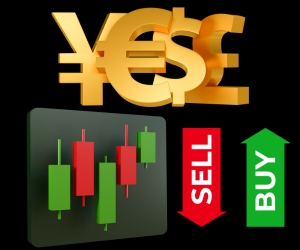Investing in oil has become a valuable practice in recent times, recognized both as a hedge during economic uncertainty and as a way to diversify portfolios. Currently, there are several ways to invest in oil, each with its own advantages and disadvantages. This article will explain how to invest and the different forms of oil investments, with a focus on the main available asset classes and the strategies to apply.

How to Invest in Oil
Oil is one of the most important commodities in the world, but also one of the most volatile, due to its high sensitivity to geopolitical and economic factors. Investing in oil may seem complex for a beginner, but there are various investment and trading alternatives, as well as clear steps that can be followed to participate in this global market.
Investment Alternatives in Oil
Oil Company Stocks: This involves buying shares of companies linked to oil, such as ExxonMobil, Shell, among others. Investing in these companies allows you to gain exposure to crude oil prices through the financial performance of the company, which often depends directly on the oil price.
Oil Futures: These are standardized financial contracts to buy or sell oil at a future date at an agreed-upon price. They are traded on organized markets like NYMEX (for WTI) and ICE (for Brent), allowing speculation on future crude oil prices.
Oil ETFs: Exchange-traded funds (ETFs) that replicate the behavior of oil prices are another way to invest. These funds usually invest in futures contracts or a basket of related assets, allowing you to gain exposure to oil in a diversified manner without having to trade futures contracts directly.
Oil CFDs: Contracts for Difference (CFDs) allow you to speculate on oil price fluctuations without owning the underlying asset. These instruments are traded with leverage, which can amplify both gains and losses, so it’s crucial to manage risk properly.
Reference Markets
WTI (West Texas Intermediate): It is the main oil benchmark in the United States, based in Cushing, Oklahoma.
Brent: It is the international standard for crude oil, widely used in Europe and other global markets.
Other Benchmarks: There are other regional benchmarks like Dubai Crude, used in the Middle East, and the OPEC Basket, which aggregates various crudes from member countries.
General Steps to Invest in Oil
Research and Analysis:
Learn about the factors affecting oil prices: production from countries, OPEC decisions, global demand, geopolitical situations, and other relevant economic indicators. Check reports from the International Energy Agency and OPEC, as well as financial news and specialized analyses to understand oil market dynamics.Opening an Investment Account:
Open an account with an authorized broker or platform that allows you to trade the instruments you are interested in (stocks, futures, ETFs, or CFDs). The process usually requires identity verification by submitting a copy of your official ID and often a utility bill to verify your address.Define Investment Strategy:
Decide whether your focus will be long-term (buying stocks or ETFs following oil price trends) or short-term (speculating with futures or CFDs, taking advantage of daily or weekly volatility). Each alternative has its advantages and risks; for example, oil company stocks tend to be less volatile than futures contracts, but they also involve additional business risks.Execution and Monitoring:
Once your strategy is clear, execute the purchase order through your broker. Regularly monitor your investment’s performance, using real-time analysis and charts, and stay informed about news that may affect oil prices (such as OPEC meetings, inventory reports, geopolitical crises, etc.).Risk Management and Diversification:
Since oil is a highly volatile asset, managing investment risk is crucial. Set stop-loss limits and, if possible, diversify your portfolio by combining oil investments with other lower volatility assets, so that a sudden drop in crude prices does not significantly affect your total capital.
SWOT Analysis of Oil as an Investment
This SWOT analysis examines the internal and external factors affecting the oil market, a fundamental energy input globally, evaluating its availability, volatility, and the impact of energy transitions.
Strengths:
Consistent global demand: Oil remains crucial for transportation, industry, and energy generation in many countries.
Established infrastructure: An extensive network for extraction, refining, and distribution facilitates its commercialization worldwide.
Liquid market: It is one of the most traded commodities, allowing high liquidity for investors.
Weaknesses:
Price volatility: Geopolitical factors, conflicts, and supply/demand fluctuations generate high volatility in crude oil prices.
Dependency on external factors: International policy, sanctions, and OPEC decisions can significantly impact prices.
Environmental impact: Growing pressure to reduce emissions and transition to renewable energies may affect long-term demand.
Opportunities:
Technological innovation: Improvements in extraction and refining techniques can reduce costs and increase efficiency.
Emerging markets: Demand in developing countries can drive sustained growth in energy consumption.
Strategic alliances: Collaborations between producing and consuming countries can stabilize supply and improve prices.
Threats:
Energy transition: The increasing adoption of renewable energies and policies to reduce fossil fuel dependency could decrease demand.
Geopolitical instability: Conflicts and international tensions can cause supply disruptions and impact prices.
Regulatory risks: Changes in environmental regulations and trade restrictions can increase costs and limit production.
What is a Commodities Broker?
A Commodities Broker is the entity or platform that allows you to operate in global commodities markets, facilitating the buying and selling of products such as oil, metals, grains, and other natural resources. These brokers provide access to specialized commodities exchanges and act as intermediaries between you and these markets.
Why do I need a Commodities Broker?
Investing in commodities can be an excellent strategy to diversify your portfolio and take advantage of price fluctuations in markets around the world. However, trading in these markets requires specific knowledge, access to real-time information, and the use of specialized trading platforms. A Commodities Broker brings all these tools together in one place, enabling you to execute trades quickly and securely, in exchange for a commission or spread.
Examples and comparisons:
There are several recognized brokers in the commodities field, such as Interactive Brokers, TradeStation, and Saxo Bank, among others. Each offers platforms with technical analysis tools, access to real-time market data, and fee structures that vary depending on the service. Some stand out by offering specialized commodities advice, while others may provide more competitive operating costs, allowing you to choose the option that best suits your needs and investor profile.
Regulatory and security aspects
It is essential that the broker you choose is regulated by recognized financial authorities, such as the U.S. Commodity Futures Trading Commission (CFTC) or the Financial Conduct Authority (FCA) in the United Kingdom. This oversight ensures that the broker complies with strict security and transparency standards, providing you with greater confidence when investing your money in highly volatile markets.
How do Commodities Brokers "connect" to the Markets?
Through agreements with commodity exchanges and the use of advanced technological platforms, these brokers facilitate the execution of buying and selling orders in global markets. They sort transactions according to price, order of arrival, and other parameters, and charge a commission when the trade is executed. This technological infrastructure allows operations to be carried out quickly and securely, ensuring real-time tracking of your investments in commodities.
In conclusion, a Commodities Broker is your gateway to the commodities markets, offering you the tools, security, and access needed to diversify your portfolio and capitalize on the opportunities in this sector.






